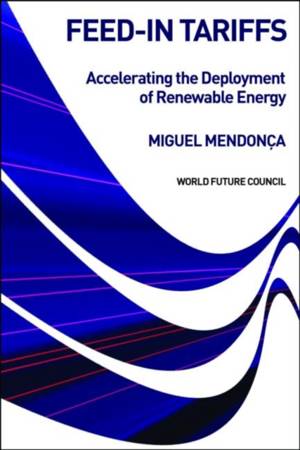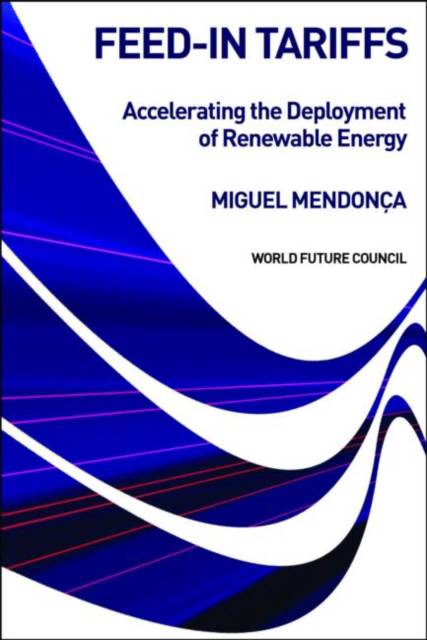
- Afhalen na 1 uur in een winkel met voorraad
- Gratis thuislevering in België vanaf € 30
- Ruim aanbod met 7 miljoen producten
- Afhalen na 1 uur in een winkel met voorraad
- Gratis thuislevering in België vanaf € 30
- Ruim aanbod met 7 miljoen producten
Zoeken
€ 103,95
+ 207 punten
Omschrijving
A feed-in tariff is a renewable energy law that obliges energy suppliers to buy electricity produced from renewable resources at a fixed price, usually over a fixed period - even from householders. These legal guarantees ensure investment security, and the support of all viable renewable energy technologies. Supporters argue that the feed-in model, if implemented effectively around the world, would greatly assist the energy revolution that is so desperately required; through CO2 reduction, market creation and development, job creation and improved energy security. Feed-in Tariffs is a concise introduction to feed-in laws, examining the experience of countries that have implemented this model. The author argues that the policy should be implemented anywhere with a suitable national power grid infrastructure, and identifies variations on the policy for those areas without. Alternative models and support schemes are examined to provide policy makers with the information required to consider the implementation of feed-in tariffs, and to introduce the concept to renewable energy technology manufacturers, producers, investors and supporters. With a foreword by Hermann Scheer. Published with the World Future Council.
Specificaties
Betrokkenen
- Auteur(s):
- Uitgeverij:
Inhoud
- Aantal bladzijden:
- 172
- Taal:
- Engels
Eigenschappen
- Productcode (EAN):
- 9781844077885
- Verschijningsdatum:
- 2/04/2009
- Uitvoering:
- Paperback
- Formaat:
- Trade paperback (VS)
- Afmetingen:
- 155 mm x 231 mm
- Gewicht:
- 294 g

Alleen bij Standaard Boekhandel
+ 207 punten op je klantenkaart van Standaard Boekhandel
Beoordelingen
We publiceren alleen reviews die voldoen aan de voorwaarden voor reviews. Bekijk onze voorwaarden voor reviews.







